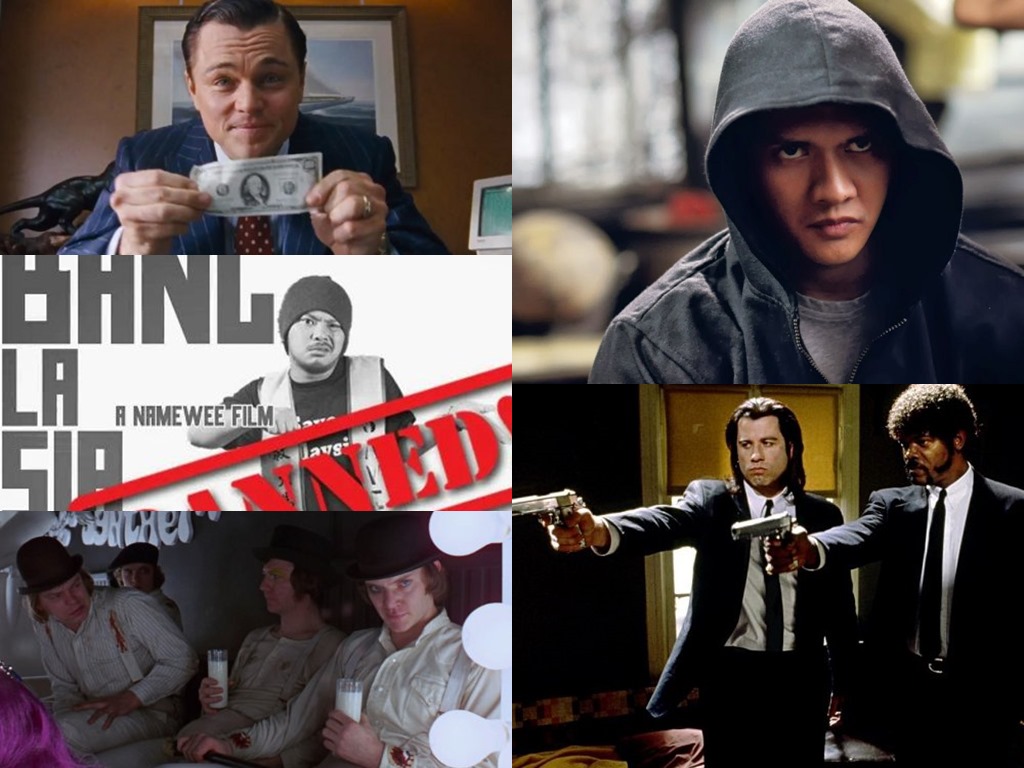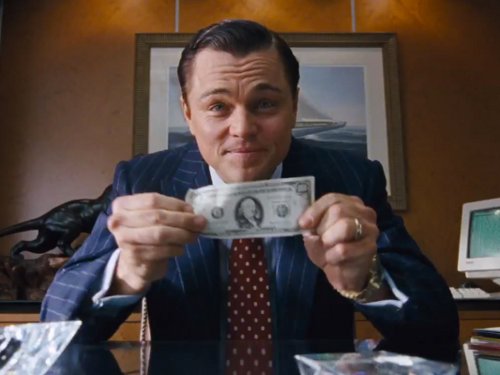
"The Raid 2" banned for peace-loving Malaysians. |
Formed in 1954, the purview of the Film Censorship Board is to check and censor films to ensure that they meet the requirements of the Cinematograph Films Act 1952 before they are allowed to be screened in Malaysian cinemas. Currently housed under the Ministry of Home Affairs, the Board continues to perform its duty based on three guidelines; the Film Censorship Act 2002, The Censorship Guidelines and The Specific Guidelines Censorship are used as the yardstick to determine whether a film is fit to be seen by the general populace of Malaysia.
With Gareth Evans' "The Raid 2: Berandal" and Darren Aronofsky's "Noah" being the latest pictures to have been stamped with the seal of rejection from ever being shown in Malaysian cinemas, we look at 15 of the major movies out of the estimated 119 films that had been slammed by the ban hammer of the Board for the sake of protecting Malaysians from harmful content.
The Raid 2: Berandal (2014)
Recently announced to have been banned according to the Malaysian distributor, it was such a great disappointment to those who did catch "The Raid: Redemption" when it was allowed on Malaysian screens for a short time in 2011. The reason for its banning has remained unknown till now, although we could guess that it has something to do with the violence. "The Raid 2" isn't the first Indonesian film to have been banned in Malaysia. "Rumah Dara" by the Mo Brothers was a slasher horror from our neighbouring country that was also banned in 2009.
A Clockwork Orange (1971)
Stanley Kubrick's visceral adaptation of Anthony Burgess's 1962 novella was banned not only for its violence unfitting for an audience in 1971, but also for its sexual content. The fact that Anthony Burgess was inspired to title his novella after a pun for 'orang' (person), get it? A Clockwork 'Orang'? Was not enough to convince the Board to let local audience see Malcolm McDowell's bloody rendition of "Singin' in the Rain". For those who didn't know, in 1954 Burgess joined the British Colonial Service as a teacher and education officer in Malaya for four years, stationed at Kuala Kangsar in Perak. Burgess was also fluent in Malay, spoken and written.
The Exorcist (1973)
In many ways, William Friedkin's adaptation of "The Exorcist" was ahead of its time in changing the horror landscape back in 1973. For the shocking imagery of a possessed child shouting profanities, spewing streams of bile and turning heads in the most unattractive ways, "The Exorcist" was deemed too far ahead for a Malaysian audience for its violence and cruelty (to who is our question).
Pulp Fiction (1994)
If you ever wondered why the average Malaysian cinemagoer cannot recite the verses from Ezekiel, it was most likely because they never got to see Quentin Tarantino's seminal "Pulp Fiction" in cinemas. Although part of the reason we think why this one deserved to be banned is because of its chatty conversations (especially the one about cheeseburgers), it was most likely because of the blood gushing violence that would make you want to clean your car seat, or because of a black leather-faced gimp.
Zoolander (2001)
Ben Stiller's "Zoolander" was a mostly a harmless satirical comedy about male models that had one of the most quotable lines (He's so hot, right now!) and also made fun of everything from sweatshops, iMacs and the Prime Minister of Malaysia. Yes, maybe that little joke about plotting to assassinate the Prime Minister of Malaysia (who looks more Vietnamese than Malaysian) went a little too far. Or maybe the thought of how emasculating it would be if the Prime Minister was assassinated by a dim male model with his 'steel magnum' was too embarrassing to let it pass. Malaysia was most likely the only country that had banned "Zoolander" when Ben Stiller himself didn't know about it until he was interviewed about it by Cinema Online.
Hear Ben Stiller talk about "Zoolander" and Malaysia at the 05:34 mark above!
The Passion of the Christ (2004)
This gruesome depiction of the crucifixion of Jesus Christ by Mel Gibson is one of many movies about figures in the Bible to have been banned due to strict laws against depicting a figure that is also in the Quran. An early example would be "The Ten Commandments", starring Charles Heston as Moses, and even the animated "Prince of Egypt" from DreamWorks Animation was also not allowed to be released in cinemas. "The Passion of the Christ", however, was allowed to be distributed in DVDs but the DVDs had to be labelled to be only meant for Christian audiences and private viewings. Naturally, the same laws forbidding figures from the Quran on screen has been applied for Darren Aronofosky's "Noah", but there could be hope for a video release.
The Last Communist (2006)
The Film Censorship Board not only examines films from overseas but also those made in Malaysia as well. "The Last Communist" is a documentary by local filmmaker Amir Muhammad that traces the roots of the Malaysia Communist Party leader, Chin Peng, with interviews of those from his hometown and those who were involved in the operations to root out communist insurgents. Despite making rounds in the international festival circuits, the documentary was banned from being screened in Malaysia due to its subject matter, but it is currently freely available in full on YouTube.
Dukun (2007)
Inspired by the scandalous killing of parliamentary member Datuk Mazlan Idris by Mona Fandey, this local horror by Dain Said was technically not banned in local cinemas, but it has never been given an official release date since 2006. Perhaps the Board isn't too comfortable with the idea of an undead Dukun haunting their dreams at night.
Dead Silence (2007)
Before James Wan became the darling of Malaysians for making "The Conjuring", Wan had his earlier slasher flicks shelved by the Censorship Board. Regardless if it was made by a Malaysian-born talent, Wan's "Dead Silence" gave the Board too many reasons to ban it the same as they did with "Child's Play", and Wan's "Saw" (and the rest of the series) was also banned in Malaysian cinemas for the same reason. Needless to say, Malaysians should take no credit to Wan's growth as filmmaker, who will be making "Fast & Furious 7", from the 'encouragement' his earlier films were given here.
Pineapple Express (2008)
Take away the drugs, the gun violence and the random blood splatters from David Gordon Green's R-rated "Pineapple Express", and it would have been a cult hit if it was allowed to be shown in Malaysian cinemas. Unfortunately, the three best things about the movie was deemed too much for our censors, so we couldn't enjoy the stoned buddy of Seth Rogen and James Franco. Maybe that's why we couldn't get "This Is the End" to be screened here too.
The Girl with the Dragon Tattoo (2011)
David Fincher's adaptation of Stieg Larsson's first novel from the Millennium trilogy was as captivating and intense as the book and the Swedish film adaptation of it. Too bad it was because of the large screentime of Rooney Mara's nudity that had the Board decided to ban the film entirely, instead of cutting out the 'offending' frames. We hope the same fate won't be done onto Fincher's upcoming "Gone Girl".
The Dictator (2012)
Sacha Baron Cohen's fictional personas may be amusing, but when he goes around harassing and offending every politically correct group or community, the effect is laugh out hilarity ensuing. That didn't amuse the Board, however, which has banned every fake persona of Cohen's since "Borat", so it was no surprise that his latest outing as the fictional president of a fictitious Middle Eastern Muslim country was not accepted in Malaysia.
Race 2 (2013)
If you'd think Bollywood movies are outside the grasp of the Board, think again. Abbas-Mustan's "Race 2", starring a power cast of Anil Kaapor, Saif Ali Khan, Deepika Padukone, John Abraham, Jacqueline Fernandez and Ameesha Patel was banned for 'showcasing the underworld of Turkey'. Incidentally, the once highest grossing Malaysian film was "KL Gangster", so it's hard to guess what makes the Turkey underworld so special to warrant a ban.
Banglasia (2013)
When Namewee had set out to make a satire comedy about foreign labour overcrowding, it was ambitious, if not a little on the nose on what's he trying to say about the establishment. So it was not so surprising that he got slapped with a reshoot order of 31 scenes after submitting "Banglasia" to the Board. It is unlikely that we would see Namewee comply with the reshoot, which he has considered it to be an 'indirect' ban on his third feature, but some would argue that controversy is what he has always been thriving on.
The Wolf of Wall Street (2013)
 |
Martin Scorsese's "The Wolf of Wall Street" was technically not banned here because it was initially never even submitted to the Board for evaluation by the distributor. TGV Pictures which had garnered the rights for the Red Granite film (now famously known for being co-founded by Riza Aziz) had decided to pull it off its line-up because they had thought of its chances of making through the censors to be very dim. However they did later submitted it to the Board, but the process apparently took too long and plus with the recent Oscar season, the leaked version was freely available online making a heavily cut version made available for the cinemas highly redundant. Indeed if you had seen the amount of debauchery and nudity involved in Jordan Belfort's rise and fall, this wolf would surely be eaten up by the Board.
An honorable mention also goes to "Schindler's List", "Saving Private Ryan" and "Jaws" by Steven Spielberg, although all three movies would later be allowed to have home releases on DVD.
Cinema Online, 02 April 2014